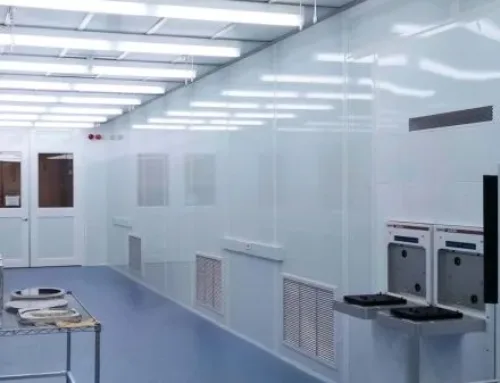What Makes a Dog Kennel Durable
When you’re investing in durable dog kennels, you want something that will stand the test of time, keep your dog safe, and handle everything from rough play to bad weather. Durability comes down to a mix of materials, construction quality, weather resistance, and safety features.
Strong and Long-Lasting Materials
The material is the foundation of any kennel’s durability. The most common and reliable options include:
- Wire mesh with thick gauge steel – ideal for ventilation and strength, especially for heavy-duty dog cages.
- Solid steel frames – best for large or aggressive breeds, offering top-notch security.
- Heavy-duty plastic – lighter, portable, and resistant to moisture and rust.
- Reinforced wood – perfect for insulated outdoor dog kennels, though it requires regular care.
For high-use or outdoor setups, welded steel or powder-coated wire is considered the best dog kennel material, offering both strength and rust resistance.
Construction for Strength and Stability
Even the best material won’t last if the kennel isn’t built right. Look for:
- Welded joints instead of clips for stronger connections.
- Stable base designs to prevent tipping or shifting.
- Reinforced corners that keep panels from bending or loosening over time.
A well-constructed kennel won’t rattle excessively and should feel solid when moved or assembled.
Weather Resistance for Outdoor Use
Outdoor dog kennels need to handle sun, rain, and snow. That’s where rustproof coatings and UV-resistant finishes come in. Powder coating or galvanized steel are must-haves for outdoor dog kennels that are weather resistant. These features prevent metal fatigue and extend the kennel’s lifespan.
Safety Features that Last
Durability isn’t just about the kennel holding together—it’s also about keeping your dog safe over time:
- Secure locking systems that resist both chewing and accidental opening.
- Chew-proof materials for dogs with strong jaws.
- Smooth, rounded edges to prevent injury.
- Tight wire spacing for small dogs to avoid paw trapping.
A kennel with both security and sturdy design will protect your dog and your investment.
Different Types of Durable Dog Kennels
When you’re picking a durable dog kennel, the type you choose matters just as much as the build quality. Materials, design, and purpose all play a role in how long it’ll last and how safe it will be for your dog. Here’s a breakdown of the main types you’ll see in the U.S. market.
Wire Dog Kennels
Pros:
- Lightweight and breathable – great for airflow indoors.
- Easy to see your dog and keep an eye on them.
- Simple to fold and store when not in use.
Cons:
- Not the best for strong, aggressive chewers.
- Works better indoors unless made from rustproof coated wire.
- Can bend or warp if the wire gauge is too thin.
Best for: Calm dogs, indoor use, or temporary setups.
Metal Steel Dog Kennels
Strength and Longevity:
- Best choice for heavy-duty use and large breeds.
- High-gauge steel construction resists bending and chewing.
- Weather-resistant coatings make them ideal for outdoor setups.
Pros:
- Extremely secure with reinforced doors and locks.
- Stands up to harsh weather and heavy use.
Cons:
- Heavier and harder to move once set up.
- Usually more expensive than wire or plastic options.
Best for: Outdoor kennels, strong or high-energy dogs, long-term installations.
Plastic and Composite Dog Kennels
Durability vs Portability:
- Made from high-impact plastic or composite materials that resist cracking.
- Lighter than steel, so easier to move or travel with.
Pros:
- Great for travel and airline-approved designs.
- Better insulation against extreme temperatures compared to wire.
Cons:
- Not as chew-proof as steel.
- Can get stuffy in hot weather if ventilation is limited.
Best for: Travel, airline use, indoor or mild outdoor conditions.
Hybrid Dog Kennels
Combination Designs:
- Mix of metal frames with plastic or composite panels for strength and comfort.
- Offers the airflow of wire with the privacy and weather protection of plastic.
Pros:
- Balanced security and comfort.
- Flexible use for both indoor and outdoor environments.
Cons:
- Heavier than plastic-only kennels.
- Pricier than basic wire cages.
Best for: Owners who want one kennel to serve multiple purposes—travel, indoor use, and backyard setup.
How to Choose the Right Durable Dog Kennel for Your Needs
Finding the right durable dog kennel is about matching your dog’s needs with the right size, materials, and features. A good kennel should keep your pet safe, be easy to maintain, and last for years. Here’s what to look at before you buy.
Match the Kennel to Your Dog
Not all kennels are built the same, and your dog’s size and temperament matter.
- Size – Your dog should be able to stand, turn, and lie down comfortably.
- Breed – Large, strong breeds may need heavy-duty steel dog kennels; smaller breeds may do fine in plastic or wire cages.
- Behavior – Chewers or escape-prone dogs require chew-proof and secure lock systems.
| Dog Size | Suggested Kennel Material | Notes |
|---|---|---|
| Small (under 25 lbs) | Plastic or coated wire | Lightweight, portable |
| Medium (25–60 lbs) | Coated steel or wire | Good balance of strength and airflow |
| Large (60+ lbs) | Heavy-duty steel | High strength, escape-proof |
| Aggressive chewers | Reinforced steel | Bite-proof, secure locks |
Decide Between Indoor and Outdoor Use
- Indoor – Focus on easy cleaning, ventilation, and portability.
- Outdoor – Look for weather-resistant materials, rustproof coatings, and roof options to protect against rain and sun.
Think About Space and Portability
- Fixed kennels – Best for permanent spots in your yard or home; usually stronger and larger.
- Foldable or portable crates – Ideal for moving around, travel, or temporary setups.
Balance Security and Durability
- Strong frame construction
- Heavy-duty locks to prevent escapes
- Smooth edges to avoid injury
- Chew-resistant panels for persistent biters
Price and Warranty Matters
- Compare price vs. lifespan — a cheap kennel may cost more long-term if it needs replacing.
- Look for warranty or satisfaction guarantees from the seller.
- Reputable suppliers often provide certified and tested materials, ensuring better durability and safety.
Advantages of Purchasing from a Reputable Wire Dog Cage Supplier
Quality Control and Certified Materials
Buying from a trusted wire dog cage supplier means you get products made with tested, certified materials that meet safety and durability standards. Reputable suppliers in the U.S. often work with heavy-duty steel, rustproof coatings, and reinforced welds, so your kennel holds up against chewing, weather, and daily wear. They also follow consistent quality checks, making each kennel safer and longer lasting.
Custom Sizing and Design Options
One big advantage is custom sizing. Good suppliers can adjust kennel height, width, and door placement to fit your space or your dog’s needs — whether you’ve got a large breed that needs extra headroom or multiple smaller dogs. Some also offer hybrid designs combining metal frames with reinforced plastic panels for a balance between strength and portability.
Customer Service and After Sales Support
A reputable seller helps you before and after you buy. You can count on:
- Guidance on picking the right kennel for your dog’s breed, size, and temperament
- Assembly help or clear instructions
- Easy access to replacement parts if you ever need repairs
- Warranty coverage for structural or material issues
This kind of support saves money in the long run and keeps your kennel in top condition.
Testimonials and Local Success Stories
Maintaining Your Durable Dog Kennel for Longevity
Keeping your durable dog kennel in good shape is about more than just appearances—regular upkeep directly impacts how safe, secure, and long-lasting it is. Whether you’re using a heavy-duty dog cage indoors or a weather-resistant outdoor kennel, these tips will help it last for years.
Regular Cleaning and Rust Prevention
- Clean Weekly: Remove debris, hair, and dirt buildup. For wire or metal kennels, use mild soap and water, then dry thoroughly to prevent rust.
- Rustproofing: Inspect for early signs of rust. Apply a rust inhibitor spray or paint with a weatherproof coating if needed—especially for outdoor steel dog kennels for large dogs.
- Odor Control: Disinfect with a pet-safe cleaner to eliminate odors, bacteria, and parasites without damaging materials.
Inspect for Damage and Make Timely Repairs
- Check Latches and Locks: Loose or broken locks compromise security and safety. Replace or tighten immediately.
- Look for Bent or Broken Panels: Dogs, especially strong or aggressive breeds, can bend metal wire or chew plastic. Repair or replace damaged parts before they cause injury.
- Secure Fasteners: Tighten bolts, hinges, and joints to maintain stability.
Best Practices for Outdoor Kennels in Different Climates
- Hot Weather: Provide shade covers, ensure ventilation, and keep water nearby. Metal surfaces can heat up quickly, so use a kennel mat to protect paws.
- Cold Weather: Add insulated panels or windbreaks. Use chew-proof bedding for extra warmth.
- Rain and Snow: Elevate the kennel slightly to keep floors dry, and choose rustproof dog crates with proper drainage.
- High-Humidity Areas: Regularly dry and air out kennels to prevent mold and corrosion.
If you’re buying a kennel for long-term outdoor use, look for ones with galvanized steel, powder-coated finishes, or heavy-duty plastic bases—they’re proven to hold up better in varied U.S. climates.
You can also check our guide on secure dog kennels for outdoor use for additional protection ideas that work year-round.







Leave A Comment